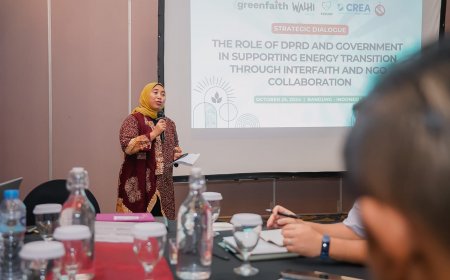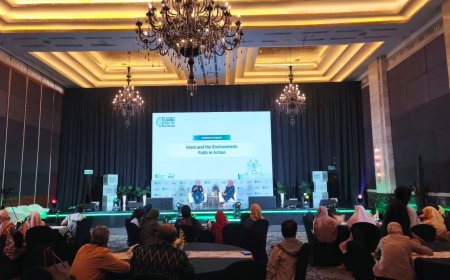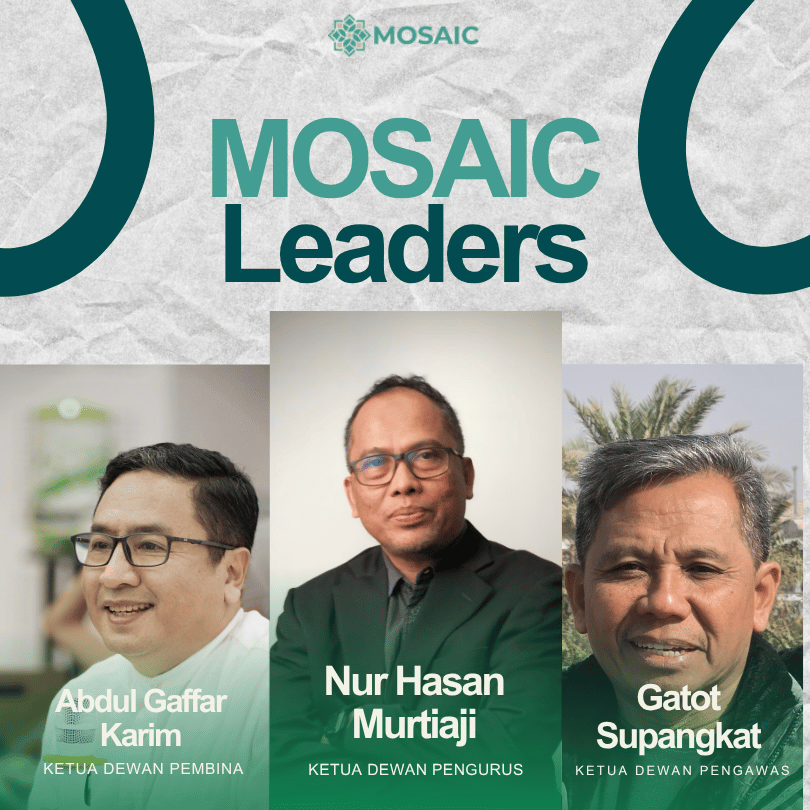Faith Pavilion at COP29: When religion being part of climate solutions
Faith Pavilion is judged to reunite this global coalition to provide religious and moral insights.
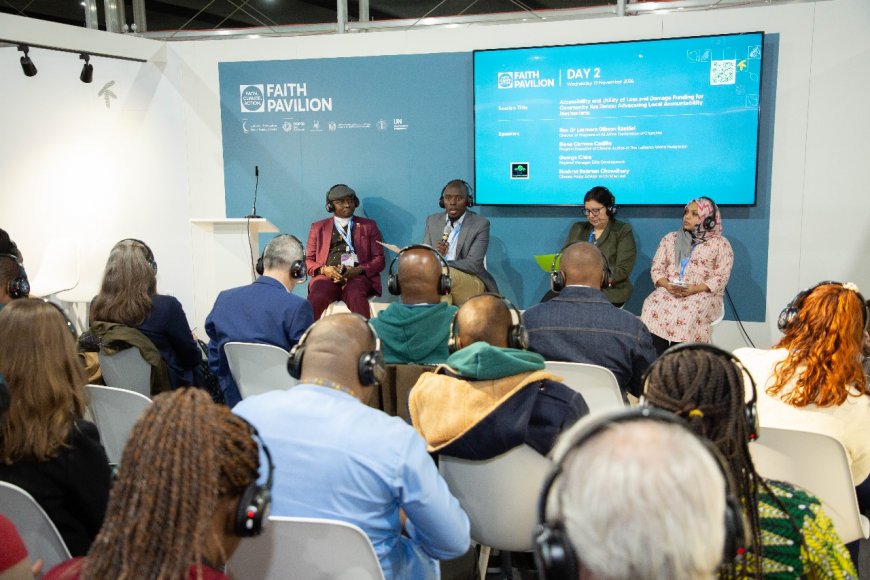
MOSAIC-INDONESIA.COM, JAKARTA -- As the global climate crisis escalates, Faith Pavilion, initiated by the Muslim Council of Elders, is expected to play an important role at the United Nations Climate Change Conference (COP29), held in Baku, Azerbaijan, this November.
Faith Pavilion, which was first held at COP28 in the United Arab Emirates in 2023, received global participation and wide international recognition. The pavilion is also expected to be able to bring together a diverse coalition of 97 organizations. Dozens of such organizations represent eleven different faiths and sects of belief. The religious community will offer a unique moral and ethical perspective to improve climate action, according to muslim-elders.com.
Faith Pavilion is judged to reunite this global coalition to provide religious and moral insights on strengthening climate efforts through a comprehensive program, including more than 40 discussion sessions exploring the integration of spirituality and ethics into climate action. Discussions in the pavilion will review restoring spiritual roots to address the climate crisis, explore the noneconomic impacts of climate change through religious perspectives, empower learners to address environmental challenges through religious teachings, the leadership role of women in achieving climate justice, fostering partnerships for climate adaptation, and harnessing indigenous and cross-religious wisdom.

At COP29, the Faith Pavilion will also explore other topics related to sustainable lifestyles, ecological villages inspired by religion, innovative climate finance, and intergenerational dialogue. The Pavilion will highlight the principles outlined in “Call of Conscience: Abu Dhabi's Joint Statement for Climate,” within an interactive framework that will make the Faith Pavilion a hub of transformative ideas and collaborative solutions. This effort will be driven by the shared values and commitments of religious communities around the world. The pavilion will also emphasize the shared dedication of these diverse communities to addressing environmental challenges and explore how spiritual teachings can inspire urgent climate action.
The Secretary-General of the Muslim Council of Elders Assembly, Hakim Mohamed Abdelsalam, underlined the urgent need for climate action to adopt innovative solutions based on ethical values and scientific knowledge. Abdelsalam emphasized the important role played by religious and intellectual leaders as strong moral voices capable of guiding individuals and communities to embrace the principles of justice and sustainability. Hakim Abdelsalam noted that the Pavilion of Faith at COP29 was built on the success of the inaugural edition of COP28 in Dubai. The pavilion also aims to ensure the sustainability of COP28 initiatives while strengthening collective spiritual efforts in addressing climate challenges.
Hakim Abdelsalam expressed his gratitude to the High Committee overseeing COP28 preparations for its support of the Faith Pavilion initiative during COP28. He praised the committee's commitment to maintaining the landmark initiative as a permanent platform for dialogue among thought and religious leaders. The aim, is to identify effective solutions to address the urgent challenges posed by climate change.
Meanwhile, the United Nations Environment Programme (UNEP), for the first time, will present a series of scientific sessions at the Faith Pavilion. Discussion sessions are focused on efforts to bridge the gap between science and religion, offering advanced insights into environmental crises while basing these discussions on ethical and spiritual frameworks. The collaboration underscores the importance of blending scientific knowledge with moral imperatives to address the climate crisis.
The COP29's Faith Pavilion will also continue to frame climate change as a deep religious and ethical issue. Religious leaders from 11 represented faiths and sects will deliver an appeal to global policymakers, urging them to consider the spiritual and moral consequences of environmental neglect and take immediate and decisive action to protect the planet. Such ethical framing is expected to influence the broader COP29 negotiations, encouraging decision-makers to incorporate moral considerations into their future climate strategies.
Recognizing the important role of young people in the fight against climate change, the Faith Pavilion will also feature young leaders from diverse religious backgrounds who will bring new perspectives and highlight the need for intergenerational collaboration in addressing the climate crisis. In addition, the pavilion will show initiatives successfully run by youth and communities the fruits of the leadership h faith-based organizations, demonstrating the real impact of grassroots climate action.
The Faith Pavilion aims to bridge the gap between spiritual, scientific, and policy-based approaches by encouraging collaboration among participating organizations, religious leaders, scientists, and policymakers.
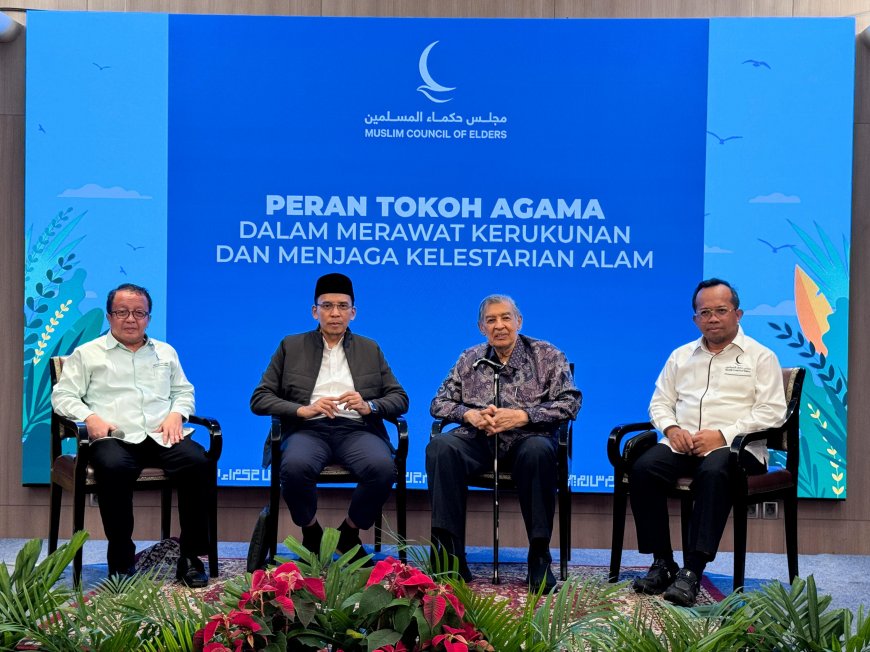
Why is the Muslim Elders talking about the problem of global temperature warming?
Muslim Council of Elders (Majelis Hukama) Executive Committee Member Dr TGB M Zainul Majdi revealed that climate issues are part of Majelis Hukama efforts to prevent conflicts that are notoriously opposed to peace. He explained that one of the sources of global community conflict going forward is the excesses of global warming.
“Global warming is impacting rising seawater, threatening coastal communities that are also marginal groups. Global warming temperatures also threaten food supply chains and could cause previously unknown diseases. Global problems will eventually create a torrent of conflict,”he said.
TGB explained that Majelis Hukama is working to address the issue of global warming because it is not only a challenge for scientists, but also religious experts to translate religious messages. He underlined a number of efforts the Majelis Hukama has initiated, including presenting the Pavilion of Faith at COP28 in Abu Dhabi and COP29 in Azerbaijan. The Faith Pavilion provides a platform for religious leaders to meet with world policy makers and engage in dialogue until a common understanding on climate action is established.
“We shave in case climate change, religion, science, public opinion is headed in the same direction that this must be urgently addressed in earnest,” he stressed.

